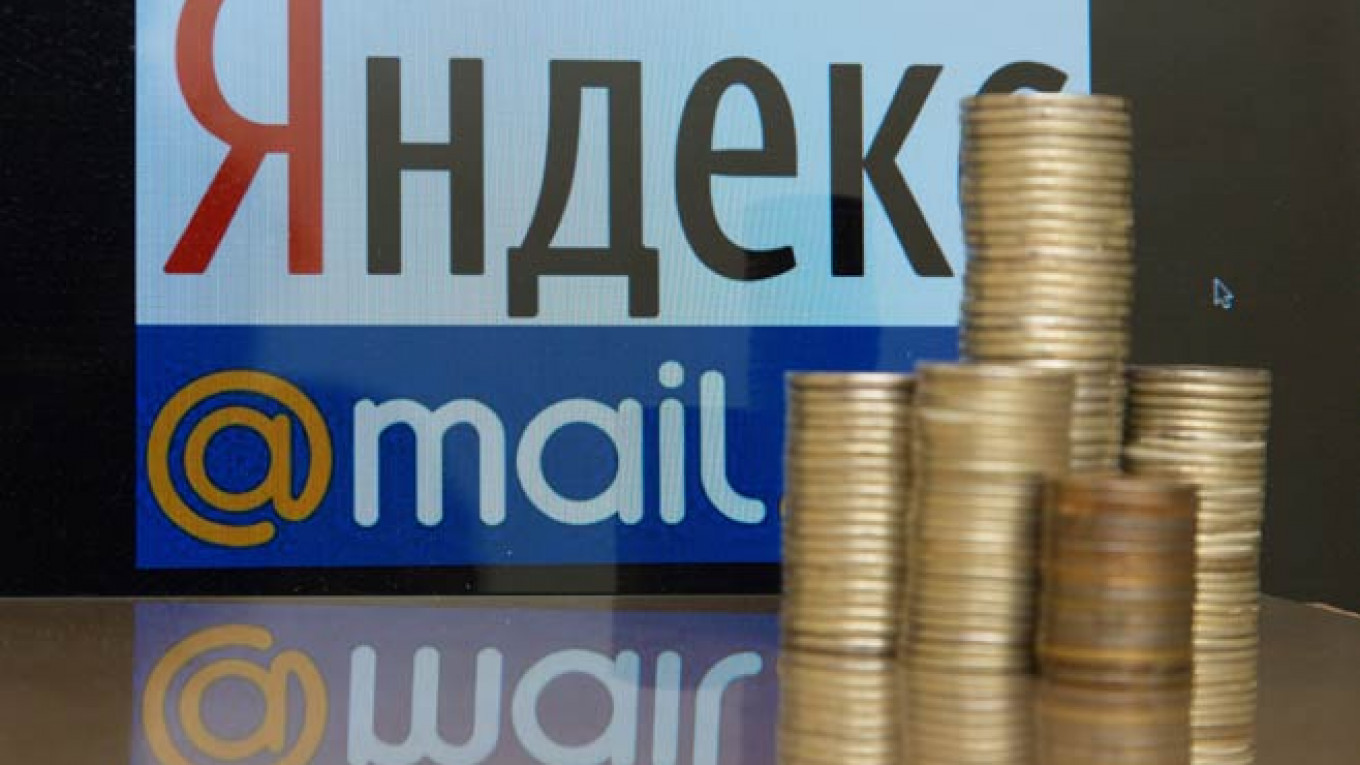Russian retailers and domestic e-commerce companies have accused online marketplace Yandex.Market of enabling and profiting off the online sale of fake and illegally imported goods.
Yandex.Market, a service offered by Russian Internet giant Yandex, is much like eBay: an open online platform which offers users access to the thousands of small Internet companies that have popped up in recent years.
Alexander Tynkovan, president of home electronics retailer M.Video, raised complaints about the website during a meeting last week of the Association of Retail Trade Companies, or AKORT, which includes such massive retailers as Auchan, X5 Retail Group and Lenta.
The vast majority of goods offered on Yandex.Market are nonauthorized, fake or illegal, Tynkovan said, Vedomosti reported.
Tynkovan called for legal amendments that would hold such platforms responsible for the goods sold there and require them to report to the Federal Consumer Protection Service and the Industry and Trade Ministry.
Tynkovan's position is shared by the association as a whole, said Andrei Karpov, AKORT's executive director. Acting Industry and Trade Minister Denis Manturov said that the ministry will consider the proposals.
The Association of Online Vendors, or AKIT, came out in support of AKORT and said that they have been working on similar proposals which they will deliver to the government within a few weeks.
Yandex.Market violates the rights of authorized distributors, as many goods are imported to Russia outside of official channels, Zhigulin said.
These unauthorized vendors can then sell their goods at lower prices than those that established retailers have agreed on with the manufacturer, putting authorized retailers at a significant disadvantage.
To illustrate the point, the price of an HTC One smartphone on Yandex.Market runs from under 18,000 rubles ($500) to 25,000 rubles ($700), with the major retailers and leading e-commerce companies on the upper end of the scale.
A Yandex spokesman said they were "surprised" that allegations of selling fake goods were being directed toward "an aggregator of advertisements, which is in essence what Market is."
"The main task of Yandex.Market is to provide information about goods, including the price of the good and the place where it can be purchased," the spokesman said.
Yandex.Market last fall began allowing visitors to purchase goods directly from its site while taking a 1 percent commission.
According to Zhigulin, it is this 1 percent that made Yandex.Market a participant in the sale process.
"The service is already acting as a salesperson — obviously, their responsibility must be established," Zhigulin said.
The situation reflects the difficulties that domestic retailers are facing as e-commerce, and particularly imports from abroad, continue to expand their market share. E-commerce as a whole grew by 30 percent last year, according to AKIT, while cross-border trade doubled to reach 20 percent of the entire e-commerce market.
The e-commerce market will grow from its current 3 percent of retail to 12 percent within the next few years, consultancy PricewaterhouseCoopers, or PwC, said in a report earlier this year.
The rapid growth will have a disruptive effect on Russian retail and has in fact already "severely affected" electronics and home appliance stores with the loss of in-store customers, the report said.
For M.Video in particular, though, the issue is not so much to protect traditional commercial retail from e-commerce as to ensure that the rules are the same for all players.
"Out of the electronics retailers, we find M.Video one of the leaders in their e-commerce offering. For them the question is whether there is another e-commerce channel that has an unfair advantage," said Martijn Peeters, who leads PwC's retail and consumer consulting practice in Moscow.
Contact the author at [email protected]
A Message from The Moscow Times:
Dear readers,
We are facing unprecedented challenges. Russia's Prosecutor General's Office has designated The Moscow Times as an "undesirable" organization, criminalizing our work and putting our staff at risk of prosecution. This follows our earlier unjust labeling as a "foreign agent."
These actions are direct attempts to silence independent journalism in Russia. The authorities claim our work "discredits the decisions of the Russian leadership." We see things differently: we strive to provide accurate, unbiased reporting on Russia.
We, the journalists of The Moscow Times, refuse to be silenced. But to continue our work, we need your help.
Your support, no matter how small, makes a world of difference. If you can, please support us monthly starting from just $2. It's quick to set up, and every contribution makes a significant impact.
By supporting The Moscow Times, you're defending open, independent journalism in the face of repression. Thank you for standing with us.
Remind me later.






